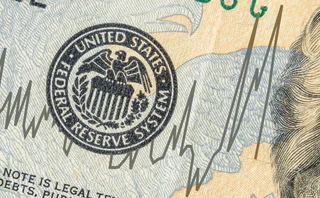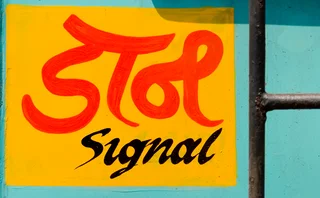
Taiwan fines BNPP and Deutsche for unlicensed derivatives sales
Six months earlier Barclays was given a 12-month ban for the same offence

BNP Paribas and Deutsche Bank were fined by Taiwan's Financial Supervisory Commission (FSC) in June for marketing derivatives onshore without a licence, the latest signal that the regulator is tightening oversight of global banks' activities in the country, following a 12-month ban imposed last year on Barclays for a similar offence.
The onshore marketing of overseas financial products by non-local employees is prohibited in Taiwan, however market participants say for years it has been common practice for global banks to use their Hong Kong-based salespeople to sell these products onshore in Taiwan.
In December last year Barclays became the first foreign bank to be censured for the practice when it was fined 12 million Taiwan dollars ($380,100) in addition to the ban from the onshore market.
Last month the regulator turned its attention to BNP Paribas and Deutsche Bank fining them the modest sum of two million Taiwan dollars for using their overseas-based employees to promote derivatives sales to Taiwanese clients, according to FSC documents.
"Regulators are fully aware of what foreign banks are doing in Taiwan but for years they just turned a blind eye to it as these activities did no harm to overall financial stability," says Andrew Fuh, Taipei-based partner at consultancy EY.
But the regulatory climate seems to be changing with an FSC official telling Risk.net they will continue to look to penalise global banks operating in Taiwan without the correct licenses. "The inspection will cover all market participants but the focus will be on banks that have relatively large business size in Taiwan and on high risk complex derivatives," says the official.
Taiwan's regulator has taken steps in the last 12 months to boost the domestic financial sector, for example by relaxing restrictions on trading foreign derivatives onshore last September. While previously all offshore-issued derivatives sales were banned, banks are now permitted to sell and trade these products onshore through locally hired people.

"The reason why these banks were punished is they were promoting these products through overseas-based sales, not local employees," says the FSC official.
The FSC official adds that both Deutsche Bank and BNP Paribas secured a licence to trade offshore securities onshore earlier this year. One of the criteria to get the licence is to hire at least three people for the Taiwan office.
"The banks are moving quite slowly in hiring local people as they are doing quite well through the current business model. They didn't expect they would be punished for this," says Fuh.
Barclays got a tougher treatment than BNPP and Deutsche because of the greater sales volumes involved and is banned from applying for the onshore trading licence for one year. The FSC also urged the British bank to trace the accountability of senior executives involved.
Shortly after the crackdown Barclays' Taiwan country head, Cosmas Lu, stepped down to be succeeded by James Lin.
EY's Fuh suggests that the root cause of the three banks' problems may be related to issues with investors.
"The real reason why these banks got fined is because some investors reported them to the FSC after they suffered big losses from trading derivatives with them. These clients deem the banks intentionally misled them for buying products unsuitable for them, but the banks insisted they have done nothing wrong.
"These things happen all the time but for some reason much more frequently this year. It's not clear if foreign banks did mislead investors but banks did do something wrong from the very beginning – using offshore people to sell products onshore. That makes a reasonable ground for the FSC to punish them."
However, Fuh adds that regulators may just use this to warn others and will not penalise more foreign banks if the buy and sell sides could jointly improve pre-trade communication and specify their own obligations and rights. "Foreign banks should act more prudently on selecting their clients in Taiwan," he says.
Spokespeople for BNP Paribas and Deutsche Bank say they have strengthened their internal controls to ensure such issues do not happen in future.
Barclays declined to comment.
According to the head of derivatives at a Taiwan bank there has already been a significant shift in the onshore derivatives market away from international banks and towards local players.
"More local houses are building up their risk warehousing capability and foreign banks' market share has dropped a lot. There is a clear sign from the regulators that they want to increase local players' competitiveness in this sector."
Only users who have a paid subscription or are part of a corporate subscription are able to print or copy content.
To access these options, along with all other subscription benefits, please contact info@risk.net or view our subscription options here: http://subscriptions.risk.net/subscribe
You are currently unable to print this content. Please contact info@risk.net to find out more.
You are currently unable to copy this content. Please contact info@risk.net to find out more.
Copyright Infopro Digital Limited. All rights reserved.
As outlined in our terms and conditions, https://www.infopro-digital.com/terms-and-conditions/subscriptions/ (point 2.4), printing is limited to a single copy.
If you would like to purchase additional rights please email info@risk.net
Copyright Infopro Digital Limited. All rights reserved.
You may share this content using our article tools. As outlined in our terms and conditions, https://www.infopro-digital.com/terms-and-conditions/subscriptions/ (clause 2.4), an Authorised User may only make one copy of the materials for their own personal use. You must also comply with the restrictions in clause 2.5.
If you would like to purchase additional rights please email info@risk.net
More on Markets
Canada benchmark shaken by T+1 hedge fund influx
Shortened settlement cycle swept hedge fund trades into Corra, making the rate more volatile
Basis swaps surge amid US repo concerns
Fed funds-versus-SOFR swap volumes nearly quadruple as declining Fed reserves impact funding rates
India delays initial margin go-live date
RBI communicated putting off initial margin rules one day before planned November 8 implementation
Clearing bottlenecks blamed for muted volumes at FMX
Regulatory hurdles and market conditions have also hampered CME rival since its September launch
JPM sees upside in blurring lines between QIS and SMAs
Hedge funds are combining their strategies with bank indexes to create new products
Hedge funds take profit on vol trades with Trump win
FX volatility drops sharply as positions unwind; rates market sees mixed reaction
Shanghai Clearing House urged to take bond collateral for FX trades
Dealers complain that feeble interest rate paid on cash margin raises cost of clearing
BofA’s e-FX rebuild pulls it closer to rivals
Deploying its equities tech stack, bank seeks to get ahead of the pack with algo and e-FX offerings







